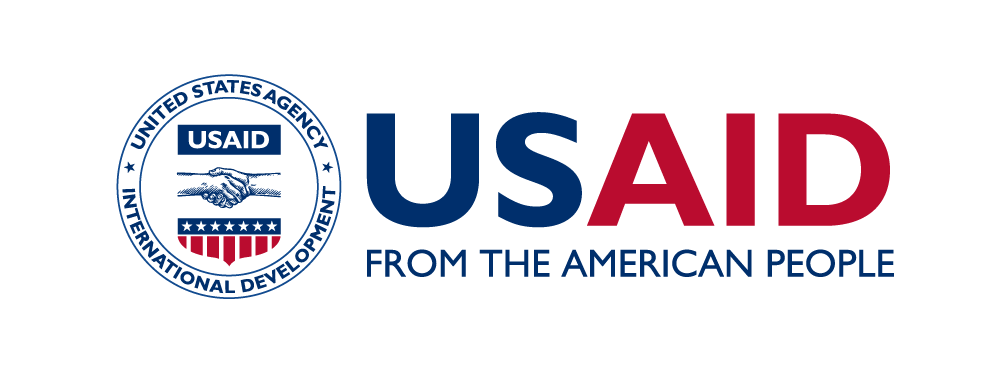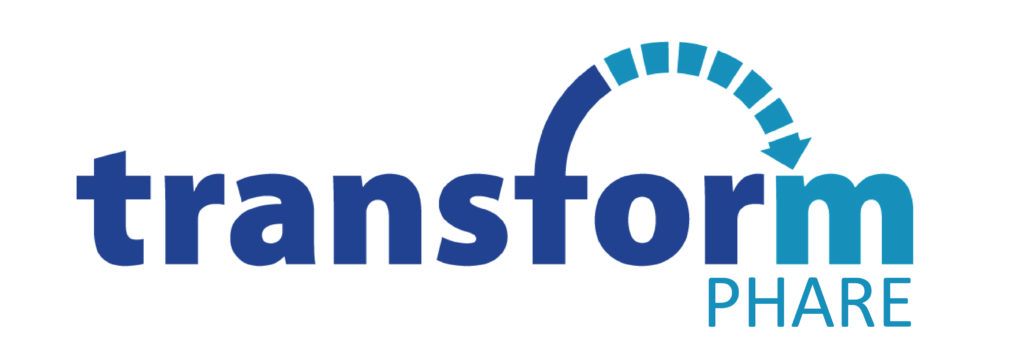Introduction
Transform/PHARE was a five-year cooperative agreement funded by the United States Agency for International Development (USAID) that applied novel techniques from marketing, advertising, human-centered design, and behavioral economics to enhance health-related behavior change programming and family planning outcomes. The consortium was led by Population Services International in partnership with Camber Collective, IDEO, and YLabs.
Transform/PHARE developed innovative social and behavior change programs to address barriers to modern contraceptive use, transform attitudes about reproductive health and promote family planning in West Africa. These new approaches were employed across four countries—Benin, Burkina Faso, Côte d’Ivoire, and Niger—and four thematic areas— audience segmentation, male engagement, provider behavior change, and cross-sectoral social and behavior change.
This Spotlight details the approaches used by Transform/PHARE. The resources provided include Innovation Briefs, which describe the innovations developed and considerations for adapting them in future family planning and reproductive health social and behavior change programs, as well as materials from specific interventions developed in the focus countries.
- Promoting Health – Adjusting the Reproductive Environment
- SBC Innovations in Family Planning
- Program Briefs: Changing Attitudes to Shift Contraceptive Demand
- Transform/PHARE: Adapter les Techniques Innovantes pour le CSC en PF/SR – Vidéo
- Transform/PHARE: Adapting Innovative Techniques for SBC in FP/RH
Adapting Innovative Approaches from Other Fields
Innovation is not necessarily an invention that is entirely new; it may be building on an approach from a different field or combining two or more existing approaches. Transform/PHARE adapted techniques pioneered outside the global health sector to better understand behavior related to family planning and design solutions with communities.
For example, human-centered design is an approach to problem-solving that places the people being served at the center of the design and implementation process, ensuring that their needs inform program decisions and testing potential solutions to ensure they are desirable and effective for the community. This increases the likelihood of social and behavior change strategies being well-received and leads to sustainable solutions. Other approaches leveraged by Transform/PHARE included the Total Market Approach, a process that maps a comprehensive picture of the family planning market in order to inform improvements in family planning resources and delivery points to meet consumers’ needs, and technology solutions such as interactive voice response.
- Innovation Brief: Applying the Human-Centered Design Approach
- Innovation Brief: A Total Market Approach for Voluntary Family Planning Programming that Includes Social and Behavior Change Communication
- Aménagement CCSC utilisant AMT en Côte d’Ivoire/ SBCC Landscaping using TMA in Cote d’Ivoire
- Innovation Brief: Leveraging Technology to Develop and Test Family Planning Mass Media Campaigns in Niger and Cote D’Ivoire
- Tests de messages itératif IVR au Niger/ Interactive Response Voice messaging (IVR) in Niger
- Reflections on Using IVR in FP Activities
Audience Segmentation
Transform/PHARE used non-traditional and innovative approaches to audience segmentation drawn from private sector marketing and advertising. These audience segmentation techniques aimed to identify segments or groups of people who are likely to adopt a behavior, change an opinion, or use a product or service according to specific desires. This analysis of attitudes and behaviors was then used to target efforts to increase the demand for family planning products and services in francophone West Africa.
For example, this approach to audience segmentation was employed in a national demand analysis of family planning in Côte d’Ivoire and an analysis of family planning attitudes and behaviors among men and women in Niger, which informed interventions developed in these countries.
- Audience Segmentation
- Innovation Brief: Translating Audience Segmentation Data into Family Planning Programmatic Action
- Innovation Brief: The Importance of Segmentation and Tailoring Messages to Constructively Engage Men and Boys in Voluntary Family Planning
- Analyse de la demande nationale de la planification familiale pour la Côte d’Ivoire/ National demand analysis of FP in Côte d’Ivoire
- Examining Male and Female Family Planning Attitudes and Behaviors in Niger
- Niger Male Segmentation Analysis
Engaging Men and Community Influencers
Men and boys play a key role as users of family planning methods, partners, service providers, social influencers and decision-makers. Transform/PHARE launched a number of interventions that promoted dialogue among couples and religious leaders, stimulated conversations about the negative impacts of rigid gender roles, and actively addressed gender inequalities during project design and implementation.
Some Transform/PHARE interventions also involved non-traditional actors, such as entrepreneurs, musicians, and comedians, to bring fresh perspectives on how to create programs that resonate with the public.
When engaging men and other community influencers, projects must account for power and gender dynamics between influencers and target audiences, which can often impact intervention outcomes.
- Male Engagement
- Innovation Brief: Engaging Influencers and Non-Traditional Actors in Participatory Processes for Family Planning Program Design
- Innovation Brief: Breaking Down Barriers to Family Planning Access by Engaging Agents of Change
- Innovation Brief: Identifying Power Dynamics Among Target Audiences and Influencers in the Project Design Process
- Partners in Progress: Innovating to Improve and Increase Male Engagement in Family Planning
- Transformer les initiatives : Utiliser le continuum de genre pour comprendre le public cible / Transforming initiatives: Using the Gender Continuum to Understand the Target Audience
- Innovations Lab, Burkina Faso
- Innovations Lab – Final report
- Innovations Lab in Burkina Faso/ Laboratoire des innovations au Burkina Faso
- Innovations Lab – Pere Burkinbila Implementation Manual
- Innovations Lab – Burkinabe Men’s Engagement in Family Planning
- Male Engagement “Heat Map”
- Didier: Engaging Young Men in the Informal Sector – Emerging Learning
- Didier – An Edutainment-based Human-Centred Design Project
- Didier and Men in the Informal Sector: Emerging Leaning:
- Didier Live Prototyping Playbook
- Didier Comic Seasons 1 and 2
- Implication des jeunes hommes du secteur informel dans la PF en utilisant un design centré sur l’homme en Côte d’Ivoire/ Engaging young men from the informal sector in FP using human centered design in Cote d’Ivoire
- Engaging Religious Leaders, Niger
- Implication des leaders religieux à travers une conception centrée sur l’humain au Niger/ Engaging Religious Leaders through Human Centered Design in Niger
- Birth Spacing and Family Welfare Sermons
- Sarari Project, Niger
- SARARI Project Video
- Outil de formation financiere
Provider Behavior Change
Just as patients may act in ways that do not align with their health preferences, providers may also act in ways that might not align with their intentions. The complexity of providing health care services in low-resource settings amplifies many of these challenges, and the stakes in these settings are particularly high. Healthcare providers’ misconceptions and biases may influence the quality of the reproductive care they provide, including family planning, contraceptive counseling, and services to women or couples. Helping providers overcome their own biases and offer client-focused services can significantly improve clients’ experience and outcomes.
“Model providers” are health workers who consistently deliver high-quality services, such as voluntary family planning, despite societal and systemic obstacles. The insights and examples of model providers can be used to support and improve provider performance across the workforce, ultimately increasing access to voluntary family planning.
- Provider Behavior Change
- Innovation Brief: Insights from Model Providers in Cote d’Ivoire to Strengthen Voluntary Family Planning Service Delivery
- Innovation Brief: Model Provider Research Approach to Identify Barriers and Facilitators to High Quality Family Planning Services
- Barrières des prestataires et déviants positifs/ Provider barriers and positive deviants
- Guide d’utilisation du kit PBCC
Cross-sectoral Social Behavior Change
Cross-sectoral social and behavior change approaches aim to provide information and encourage dialogue about family planning in settings outside the traditional health context, such as in agricultural settings, trade schools, or businesses. Transform/PHARE applied this cross-sectoral approach in Benin, Niger, and Côte d’Ivoire to determine whether men and women who do not usually express interest in learning about family planning and contraception from health providers would be more inclined to do so in non-health related environments.
For example, in Benin, Transform/PHARE developed a prototype craft academy, Académie de l’Artisanat, to reach young, out-of-school women with information and referrals for modern contraceptive methods while teaching them income-generating skills. Transform/PHARE also used other tool such as social network analysis and interactive voice response to reach women outside of traditional health settings.
- Cross-Sectoral Social Behavior Change
- Académie de l’Artisanat – Benin
- Academie de l’artisanat – Implication des filles non scolarisées avec design centré sur l’humain au Bénin/ Académie de l’artisanat – Targeting Out of School Girls with HCD in Benin
- Analyse de réseaux sociaux au Niger/ Social Network Analysis in Niger
 |  |  |
Date of Publication: April 20, 2022

